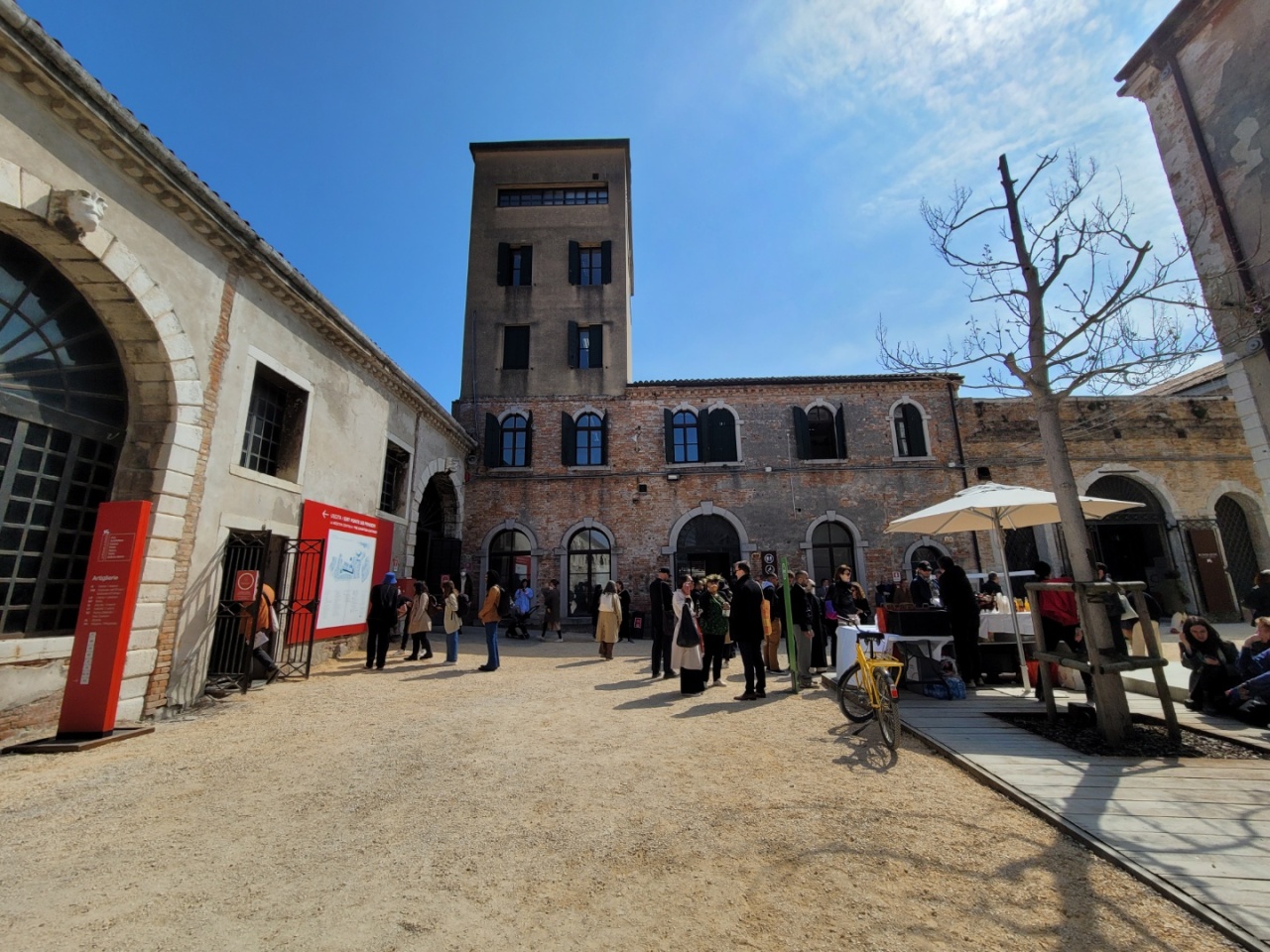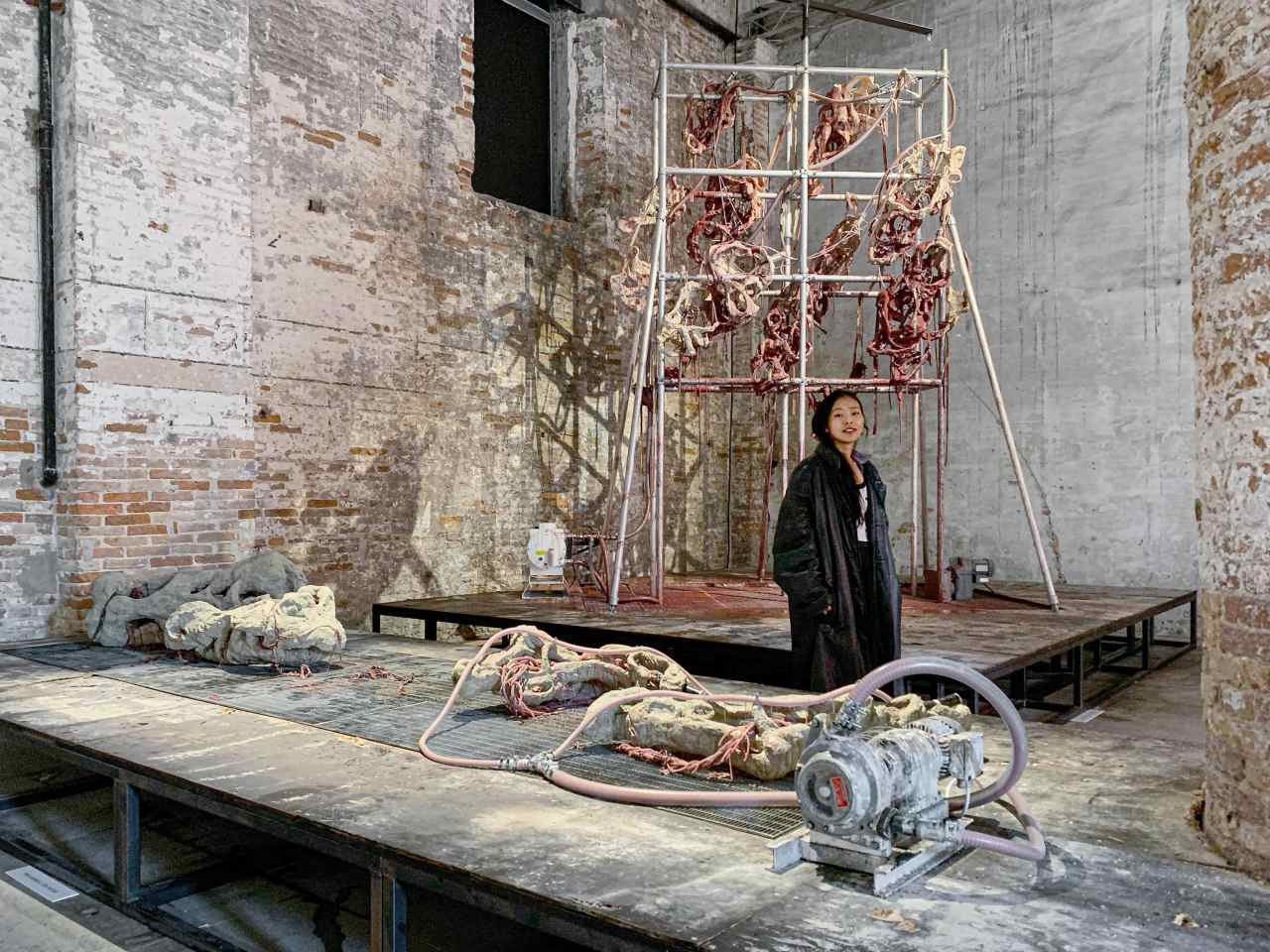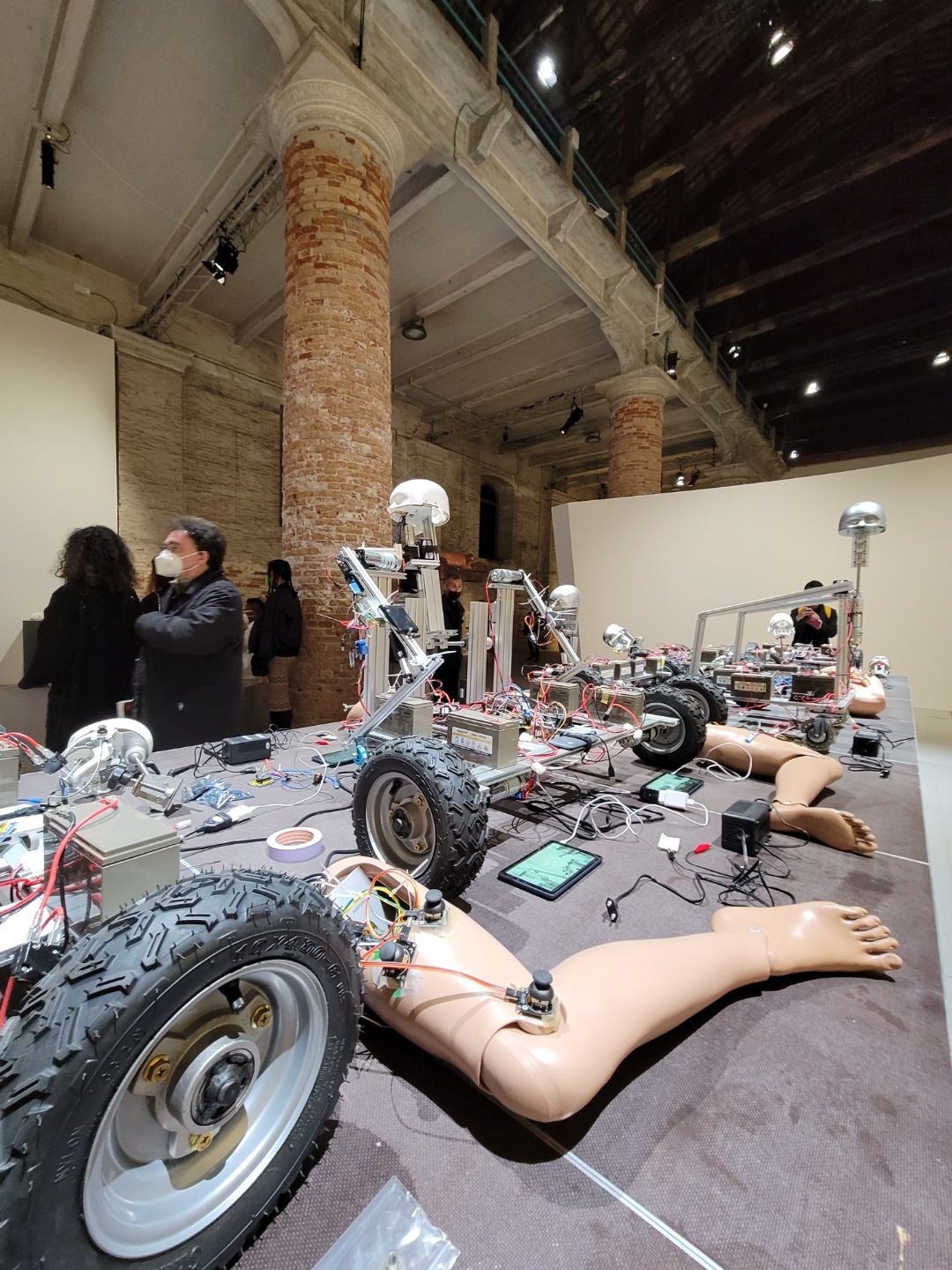 |
The Arsenale, the main exhibition venue of the Venice Biennale 2022 on Wednesday (Park Yuna/The Korea Herald) |
VENICE, Italy -- Taking place amid the COVID-19 pandemic, which has become a turning point for many people, the 59th edition of Venice Biennale feels special, forcing us to think differently about life and things that we have taken for granted.
This year’s international art exhibition, titled “The Milk of Dreams,” was curated by Cecilia Alemani and features works by 213 artists from 58 countries. The artists’ new works are presented at the biennale’s two main venues, the Arsenale and the Giardini. The Arsenale features a collective exhibition by artists from all over the world while the Giardini is mostly dedicated to national pavilions where works by the respective country’s artists are on display.
The Arsenale, first used by the Venice Biennale in 1980 for the Architecture Exhibition curated by Paolo Portoghesi, was crowded with people waiting to get into the exhibition. The exhibition starts with a curatorial description written by Alemani who was inspired by “The Milk of Dreams,” a book by surrealist artist Leonora Carrington (1917-2011), in naming the exhibition.
“Carrington’s stories describe a magical world where life is constantly re-envisioned through the prism of the imagination and where everyone can change, be transformed, or become something or someone else. The exhibition takes Carrington’s otherworldly creatures as companions on an imaginary journey through metamorphoses of the body and definitions of the human,” she noted.
Female artists dominate the collective exhibition at the Arsenale -- an exhibition space of 50,000 square meters. For the first time in its 127-year history, the majority of the participants at the biennale are women and gender-nonconforming, a choice that reflects an international art scene full of creative ferment and a deliberate rethinking of men’s centrality in the history of art and contemporary culture, according to the La Biennale di Venezia.
 |
Lee Mi-re stands in front of her work, “Endless House: Holes and Drips,” at the Arsenale, the main exhibition venue of the Venice Biennale 2022. (Tina Kim Gallery) |
Among the participating artists at the Arsenale are two rising Korean artists, Lee Mi-re and Jeong Geum-hyung, who are showing at Venice for the first time.
The kinetic ceramic sculpture “Endless House: Holes and Drips” by Lee is reminiscent of internal organs with lots of mucus flowing through, suggesting the tension of states and aliveness. The large-scale sculptures that resemble machines and internal organs appear so unnerving that they stop you in your tracks.
“I wanted to show the process by which substances in our body circulate with different holes. The ceramic creatures contain things, but substances fall through shortly,” Lee said. Born in 1988, Lee is based in Seoul and Amsterdam.
Her recent kinetic sculpture “Carriers,” inspired by the concept of vorarephilia, or “vore” -- the erotic fetish for being consumed or consuming another person or creature alive -- was shown at Art Sonje Center in Seoul in 2020.
Lee’s newly created installation at the biennale appeared to be closer to internal organs with seemingly reddish mucus -- a blood-colored liquid that continuously flows over the complex arrangement of the installation work made with ceramics. After the exhibition, the ceramic pieces of the installation will be fired once again, according to Lee.
 |
Toy Prototype” by Jeong Geum-hyung is on display at the Arsenale, the main exhibition venue of the Venice Biennale 2022. (Park Yuna/The Korea Herald) |
The relationship between the individual and technology is one of core themes of the exhibition and Jeong, an installation and performance artist, is one of the artists who delves into the issue. Her “Toy Prototype” explores the unsettling interaction between humans and non-humans. The “toys” on view at the show -- presented alongside videos documenting Jeong’s own interactions with her machines -- are DIY robots created by the artist, who taught herself to program electronic circuits and mechanisms. She creates encounters between humans and machines that test humans’ capacity for empathy when non-human entities seem to need humans’ help.
By Korea Herald correspondent Park Yuna
(
yunapark@heraldcorp.com)



![[Venice Biennale 2022] ‘Gyre’ at Korean Pavilion questions absolute power](http://res.heraldm.com/phpwas/restmb_idxmake.php?idx=605&simg=/content/image/2022/04/21/20220421000856_0.jpg)
![[Venice Biennale 2022] Venice exhibition highlights Korean contemporary artist Ha Chong-hyun](http://res.heraldm.com/phpwas/restmb_idxmake.php?idx=605&simg=/content/image/2022/04/25/20220425000229_0.jpg)
![[Venice Biennale 2022] Chun Kwang-young perseveres with making hanji packages](http://res.heraldm.com/phpwas/restmb_idxmake.php?idx=605&simg=/content/image/2022/04/27/20220427000083_0.jpg)
![[Venice Biennale 2022] Park Seo-bo shows his unending spirit with new Ecriture works in Venice](http://res.heraldm.com/phpwas/restmb_idxmake.php?idx=605&simg=/content/image/2022/05/02/20220502000879_0.jpg)







![[Today’s K-pop] Blackpink’s Jennie, Lisa invited to Coachella as solo acts](http://res.heraldm.com/phpwas/restmb_idxmake.php?idx=644&simg=/content/image/2024/11/21/20241121050099_0.jpg)